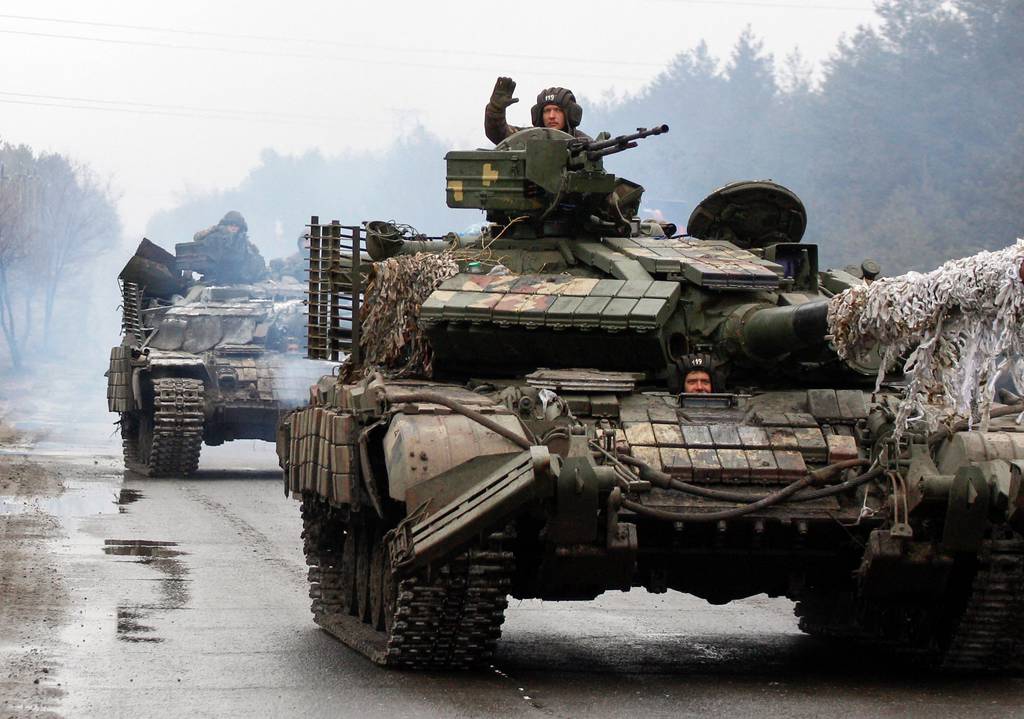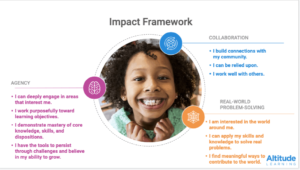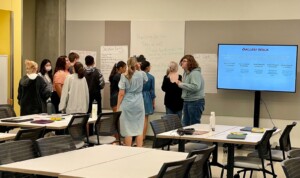Turning Points: New Mental Models, New Learning Models
Key Points
-
Turning points signal times when decisive change occurs or when systems change becomes inevitable.
-
Turning points challenge old assumptions and require new mentals–and, when the world shifts, they require new skills and new learning experiences.

“The current crisis, therefore, is not just a crisis of individuals, governments, or social institutions; it is a transition of planetary dimensions. As individuals, as a society, as a civilization, and as a planetary ecosystem, we are reaching the turning point.”
-Fritjof Capra, The Turning Point, 1982
Forty years ago, physicist Fritjof Capra spotted a turning point in human civilization. He was early in noting “the decline of the patriarchy, the end of the fossil-fuel age, and the paradigm shift occurring in the twilight of the sensate culture.”
Turning points (and Gladwell popularized tipping points) signal times when decisive change occurs or when systems change becomes inevitable. Turning points challenge old assumptions and require new mentals–and, when the world shifts, they require new skills and new learning experiences.
We reached (at least) six turning points in the last few years:
1. Global contagion. Infection is quickly pandemic. For the first time, our species is experiencing global contagion in health, economy, climate, and media. A meme, a germ, an economic panic now spreads in days or even hours around the world.
The Information Age world has been VUCA (volatile, uncertain, complex and ambiguous), it’s time to add an H for hyper-connectivity (VUCAH).
2. Climate adaptation. The fifth Annual Report 5 of the Intergovernmental Panel on Climate Change (IPCC) in 2014 marked scientific consensus on the climate crisis and paved the way for United Nations Sustainable Development Goals in 2015.
A new IPCC update suggests mitigation won’t be enough to avoid disastrous warming–we’re in for decades of adapting to a hot and volatile planet.
3. New world order. Russia’s invasion of Ukraine (and China’s treatment of Hong Kong and threats to Taiwan) signal the end of the Post-Cold War era with an anti-west authoritarian axis.
Sanctions on Russia and China mark the end of cooperation when it is most needed to address shared challenges including the climate crisis.
4. Ubiquitous artificial intelligence. In The Master Algorithm (2015), Pedro Domingos said, “We live in the age of algorithms…[they] are in every nook and cranny of civilization.” It was one of the first signals that every rule based procedure was being automated and that every sector was growing more complex. Seven years later, work in most sectors is done by diverse teams working on new problems using smart machines. While smart tools are producing valuable benefits, they accelerate inequity and, through ad-driven social media, are making us stupid and mean.
5. Synthetic biology. Walter Issaccson, author of Code Breakers, argues the Cold War was about atoms, the Information Age was about bits, and the next 40 years will be about genes. Since mapping the human genome almost two decades ago, progress in synthetic biology has accelerated with steady progress in gene editing and the notable recent success in mRNA COVID vaccines. Synthetic biology will continue to drive improvements in health and longevity while raising new questions about ethics and access.
6. Social contract. BlackRock CEO Larry Fink’s letter to CEOs (2015) marks the beginning of capitalism 2.0, a shift from chasing quarterly profits to taking a long view, valuing stakeholders, and considering sustainability. A growing number of investors consider impact as well as return. Pandemic aid signals a future with a thicker social contract. The great resignation signals a new employment contract. The national reaction to the murder of George Floyd and the flood of diversity, equity and inclusion initiatives seemed to mark a new era of racial reconciliation (however, the subsequent backlash, particularly in education, signals that we’re far from “a perfect Union”).
Turning points challenge old assumptions and require new mentals–and, when the world shifts, they require new skills and new learning experiences.
Tom Vander Ark
These prosocial shifts have been slowed by inequity ratcheted by the other change forces (particularly the pandemic, automation and climate change).
New Mental Models, New Learning Models
Turning points are signs that the world works (or is about to work) in new ways. They require updated mental models, business models and learning models.
These turning points suggest the need for community–iterative agreements around new solutions that benefit more stakeholders. These turning points demand flexibility–people and organizations with agility and resilience. These turning points call for a sustainability mindset where every transaction is made through the lens of climate, health, and equity.
Our inherited education systems are trapped in traditions and policies that grow less relevant every month. These turning points suggest the need for more engaging, more relevant experiences around new learning goals. They suggest the need for less memorizing and more problem spotting; less calculating and more solution crafting with smart tools; less compliance and more purpose-driven work important to youth and their communities.
The pandemic, along with the climate crisis, war, and social media caused what the Surgeon General called a youth mental health crisis. Schools worldwide have responded by moving social and emotional learning to the heart of the agenda and strengthening multi-tiered systems of supports.
While policies restricting or banning lessons on race and efforts to increase DEI have had a chilling effect, the push for more inclusive education appeared to be strong at this week’s SXSWedu conference.
There are a growing number of schools including the Green Schools National Network, adopting new relevant learning goals, engaging students in more community-connected project-based learning experiences, adding strong support systems, and building sustainable communities.
These turning points paradoxically signal crisis and opportunity for youth. It’s never been easier or more important for young people to make a difference–and in doing so contribute to personal and community wellness.






0 Comments
Leave a Comment
Your email address will not be published. All fields are required.